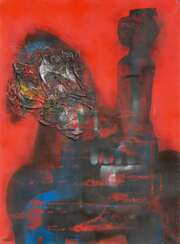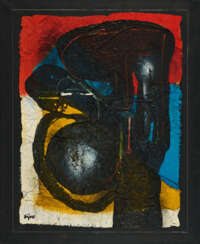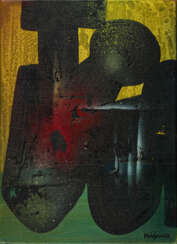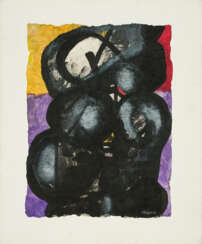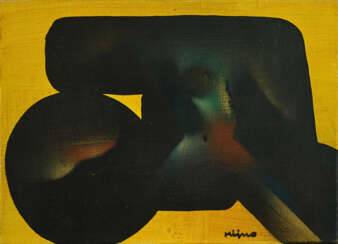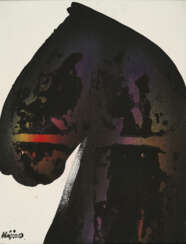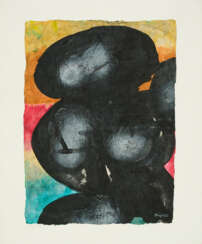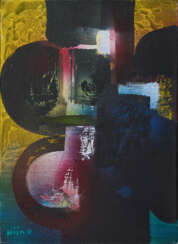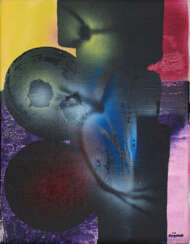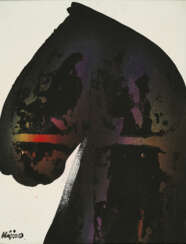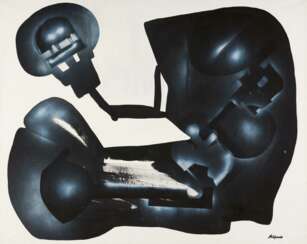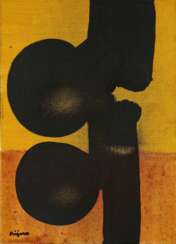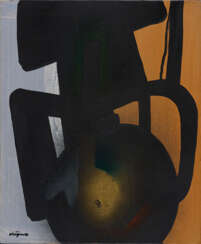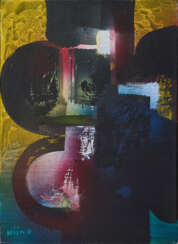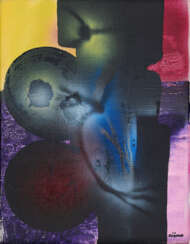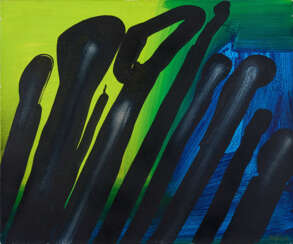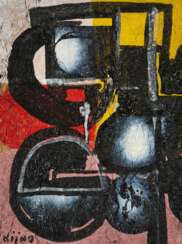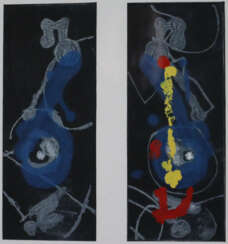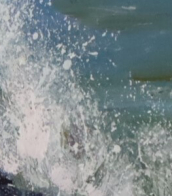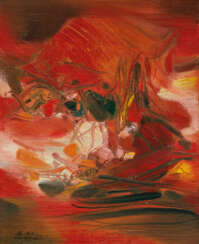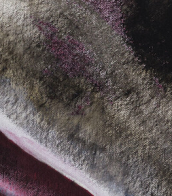ladislas kijno
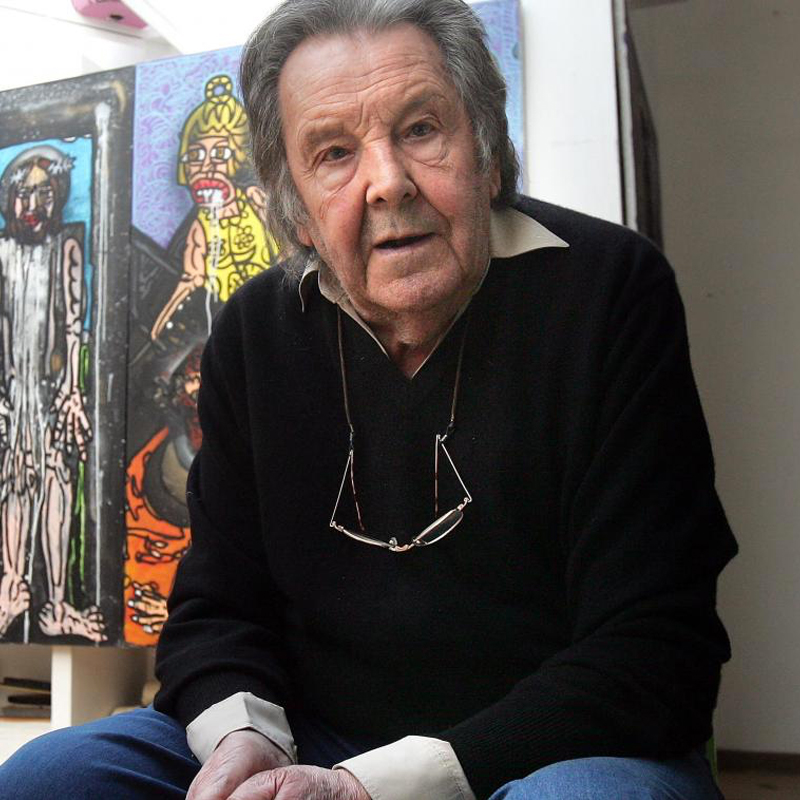
Ladislas Kijno is a French artist of Polish origin, one of the greatest abstractionists of the twentieth century.
In 1958 he moved to Paris and was accepted into the Salon de Mai committee. In Paris Kijno invented the technique of froissage - work with crumpled paper. During the same period the artist began experimenting with spray can paints, thus creating a synthesis between traditional painting techniques and modern inventions. Through the use of spray cans, Ladislas Kijno became known as one of the "spiritual fathers" of French street art.
In 1980 at the Venice Biennale Kijno exhibited 30 monumental paintings in the recognizable "crumpled" technique under the general title "Theater of Neruda".
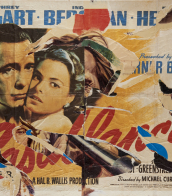

Ladislas Kijno is a French artist of Polish origin, one of the greatest abstractionists of the twentieth century.
In 1958 he moved to Paris and was accepted into the Salon de Mai committee. In Paris Kijno invented the technique of froissage - work with crumpled paper. During the same period the artist began experimenting with spray can paints, thus creating a synthesis between traditional painting techniques and modern inventions. Through the use of spray cans, Ladislas Kijno became known as one of the "spiritual fathers" of French street art.
In 1980 at the Venice Biennale Kijno exhibited 30 monumental paintings in the recognizable "crumpled" technique under the general title "Theater of Neruda".
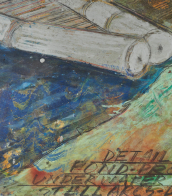

Ladislas Kijno is a French artist of Polish origin, one of the greatest abstractionists of the twentieth century.
In 1958 he moved to Paris and was accepted into the Salon de Mai committee. In Paris Kijno invented the technique of froissage - work with crumpled paper. During the same period the artist began experimenting with spray can paints, thus creating a synthesis between traditional painting techniques and modern inventions. Through the use of spray cans, Ladislas Kijno became known as one of the "spiritual fathers" of French street art.
In 1980 at the Venice Biennale Kijno exhibited 30 monumental paintings in the recognizable "crumpled" technique under the general title "Theater of Neruda".
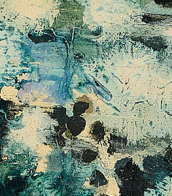

Ladislas Kijno is a French artist of Polish origin, one of the greatest abstractionists of the twentieth century.
In 1958 he moved to Paris and was accepted into the Salon de Mai committee. In Paris Kijno invented the technique of froissage - work with crumpled paper. During the same period the artist began experimenting with spray can paints, thus creating a synthesis between traditional painting techniques and modern inventions. Through the use of spray cans, Ladislas Kijno became known as one of the "spiritual fathers" of French street art.
In 1980 at the Venice Biennale Kijno exhibited 30 monumental paintings in the recognizable "crumpled" technique under the general title "Theater of Neruda".


Ladislas Kijno is a French artist of Polish origin, one of the greatest abstractionists of the twentieth century.
In 1958 he moved to Paris and was accepted into the Salon de Mai committee. In Paris Kijno invented the technique of froissage - work with crumpled paper. During the same period the artist began experimenting with spray can paints, thus creating a synthesis between traditional painting techniques and modern inventions. Through the use of spray cans, Ladislas Kijno became known as one of the "spiritual fathers" of French street art.
In 1980 at the Venice Biennale Kijno exhibited 30 monumental paintings in the recognizable "crumpled" technique under the general title "Theater of Neruda".


Ladislas Kijno is a French artist of Polish origin, one of the greatest abstractionists of the twentieth century.
In 1958 he moved to Paris and was accepted into the Salon de Mai committee. In Paris Kijno invented the technique of froissage - work with crumpled paper. During the same period the artist began experimenting with spray can paints, thus creating a synthesis between traditional painting techniques and modern inventions. Through the use of spray cans, Ladislas Kijno became known as one of the "spiritual fathers" of French street art.
In 1980 at the Venice Biennale Kijno exhibited 30 monumental paintings in the recognizable "crumpled" technique under the general title "Theater of Neruda".


Ladislas Kijno is a French artist of Polish origin, one of the greatest abstractionists of the twentieth century.
In 1958 he moved to Paris and was accepted into the Salon de Mai committee. In Paris Kijno invented the technique of froissage - work with crumpled paper. During the same period the artist began experimenting with spray can paints, thus creating a synthesis between traditional painting techniques and modern inventions. Through the use of spray cans, Ladislas Kijno became known as one of the "spiritual fathers" of French street art.
In 1980 at the Venice Biennale Kijno exhibited 30 monumental paintings in the recognizable "crumpled" technique under the general title "Theater of Neruda".


Ladislas Kijno is a French artist of Polish origin, one of the greatest abstractionists of the twentieth century.
In 1958 he moved to Paris and was accepted into the Salon de Mai committee. In Paris Kijno invented the technique of froissage - work with crumpled paper. During the same period the artist began experimenting with spray can paints, thus creating a synthesis between traditional painting techniques and modern inventions. Through the use of spray cans, Ladislas Kijno became known as one of the "spiritual fathers" of French street art.
In 1980 at the Venice Biennale Kijno exhibited 30 monumental paintings in the recognizable "crumpled" technique under the general title "Theater of Neruda".
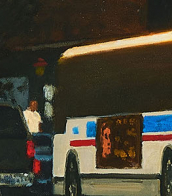

Ladislas Kijno is a French artist of Polish origin, one of the greatest abstractionists of the twentieth century.
In 1958 he moved to Paris and was accepted into the Salon de Mai committee. In Paris Kijno invented the technique of froissage - work with crumpled paper. During the same period the artist began experimenting with spray can paints, thus creating a synthesis between traditional painting techniques and modern inventions. Through the use of spray cans, Ladislas Kijno became known as one of the "spiritual fathers" of French street art.
In 1980 at the Venice Biennale Kijno exhibited 30 monumental paintings in the recognizable "crumpled" technique under the general title "Theater of Neruda".
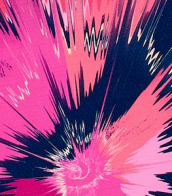

Ladislas Kijno is a French artist of Polish origin, one of the greatest abstractionists of the twentieth century.
In 1958 he moved to Paris and was accepted into the Salon de Mai committee. In Paris Kijno invented the technique of froissage - work with crumpled paper. During the same period the artist began experimenting with spray can paints, thus creating a synthesis between traditional painting techniques and modern inventions. Through the use of spray cans, Ladislas Kijno became known as one of the "spiritual fathers" of French street art.
In 1980 at the Venice Biennale Kijno exhibited 30 monumental paintings in the recognizable "crumpled" technique under the general title "Theater of Neruda".


Ladislas Kijno is a French artist of Polish origin, one of the greatest abstractionists of the twentieth century.
In 1958 he moved to Paris and was accepted into the Salon de Mai committee. In Paris Kijno invented the technique of froissage - work with crumpled paper. During the same period the artist began experimenting with spray can paints, thus creating a synthesis between traditional painting techniques and modern inventions. Through the use of spray cans, Ladislas Kijno became known as one of the "spiritual fathers" of French street art.
In 1980 at the Venice Biennale Kijno exhibited 30 monumental paintings in the recognizable "crumpled" technique under the general title "Theater of Neruda".


Ladislas Kijno is a French artist of Polish origin, one of the greatest abstractionists of the twentieth century.
In 1958 he moved to Paris and was accepted into the Salon de Mai committee. In Paris Kijno invented the technique of froissage - work with crumpled paper. During the same period the artist began experimenting with spray can paints, thus creating a synthesis between traditional painting techniques and modern inventions. Through the use of spray cans, Ladislas Kijno became known as one of the "spiritual fathers" of French street art.
In 1980 at the Venice Biennale Kijno exhibited 30 monumental paintings in the recognizable "crumpled" technique under the general title "Theater of Neruda".


Ladislas Kijno is a French artist of Polish origin, one of the greatest abstractionists of the twentieth century.
In 1958 he moved to Paris and was accepted into the Salon de Mai committee. In Paris Kijno invented the technique of froissage - work with crumpled paper. During the same period the artist began experimenting with spray can paints, thus creating a synthesis between traditional painting techniques and modern inventions. Through the use of spray cans, Ladislas Kijno became known as one of the "spiritual fathers" of French street art.
In 1980 at the Venice Biennale Kijno exhibited 30 monumental paintings in the recognizable "crumpled" technique under the general title "Theater of Neruda".
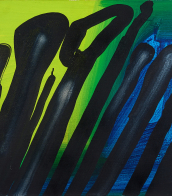

Ladislas Kijno is a French artist of Polish origin, one of the greatest abstractionists of the twentieth century.
In 1958 he moved to Paris and was accepted into the Salon de Mai committee. In Paris Kijno invented the technique of froissage - work with crumpled paper. During the same period the artist began experimenting with spray can paints, thus creating a synthesis between traditional painting techniques and modern inventions. Through the use of spray cans, Ladislas Kijno became known as one of the "spiritual fathers" of French street art.
In 1980 at the Venice Biennale Kijno exhibited 30 monumental paintings in the recognizable "crumpled" technique under the general title "Theater of Neruda".


Ladislas Kijno is a French artist of Polish origin, one of the greatest abstractionists of the twentieth century.
In 1958 he moved to Paris and was accepted into the Salon de Mai committee. In Paris Kijno invented the technique of froissage - work with crumpled paper. During the same period the artist began experimenting with spray can paints, thus creating a synthesis between traditional painting techniques and modern inventions. Through the use of spray cans, Ladislas Kijno became known as one of the "spiritual fathers" of French street art.
In 1980 at the Venice Biennale Kijno exhibited 30 monumental paintings in the recognizable "crumpled" technique under the general title "Theater of Neruda".


Ladislas Kijno is a French artist of Polish origin, one of the greatest abstractionists of the twentieth century.
In 1958 he moved to Paris and was accepted into the Salon de Mai committee. In Paris Kijno invented the technique of froissage - work with crumpled paper. During the same period the artist began experimenting with spray can paints, thus creating a synthesis between traditional painting techniques and modern inventions. Through the use of spray cans, Ladislas Kijno became known as one of the "spiritual fathers" of French street art.
In 1980 at the Venice Biennale Kijno exhibited 30 monumental paintings in the recognizable "crumpled" technique under the general title "Theater of Neruda".


Ladislas Kijno is a French artist of Polish origin, one of the greatest abstractionists of the twentieth century.
In 1958 he moved to Paris and was accepted into the Salon de Mai committee. In Paris Kijno invented the technique of froissage - work with crumpled paper. During the same period the artist began experimenting with spray can paints, thus creating a synthesis between traditional painting techniques and modern inventions. Through the use of spray cans, Ladislas Kijno became known as one of the "spiritual fathers" of French street art.
In 1980 at the Venice Biennale Kijno exhibited 30 monumental paintings in the recognizable "crumpled" technique under the general title "Theater of Neruda".


Ladislas Kijno is a French artist of Polish origin, one of the greatest abstractionists of the twentieth century.
In 1958 he moved to Paris and was accepted into the Salon de Mai committee. In Paris Kijno invented the technique of froissage - work with crumpled paper. During the same period the artist began experimenting with spray can paints, thus creating a synthesis between traditional painting techniques and modern inventions. Through the use of spray cans, Ladislas Kijno became known as one of the "spiritual fathers" of French street art.
In 1980 at the Venice Biennale Kijno exhibited 30 monumental paintings in the recognizable "crumpled" technique under the general title "Theater of Neruda".



